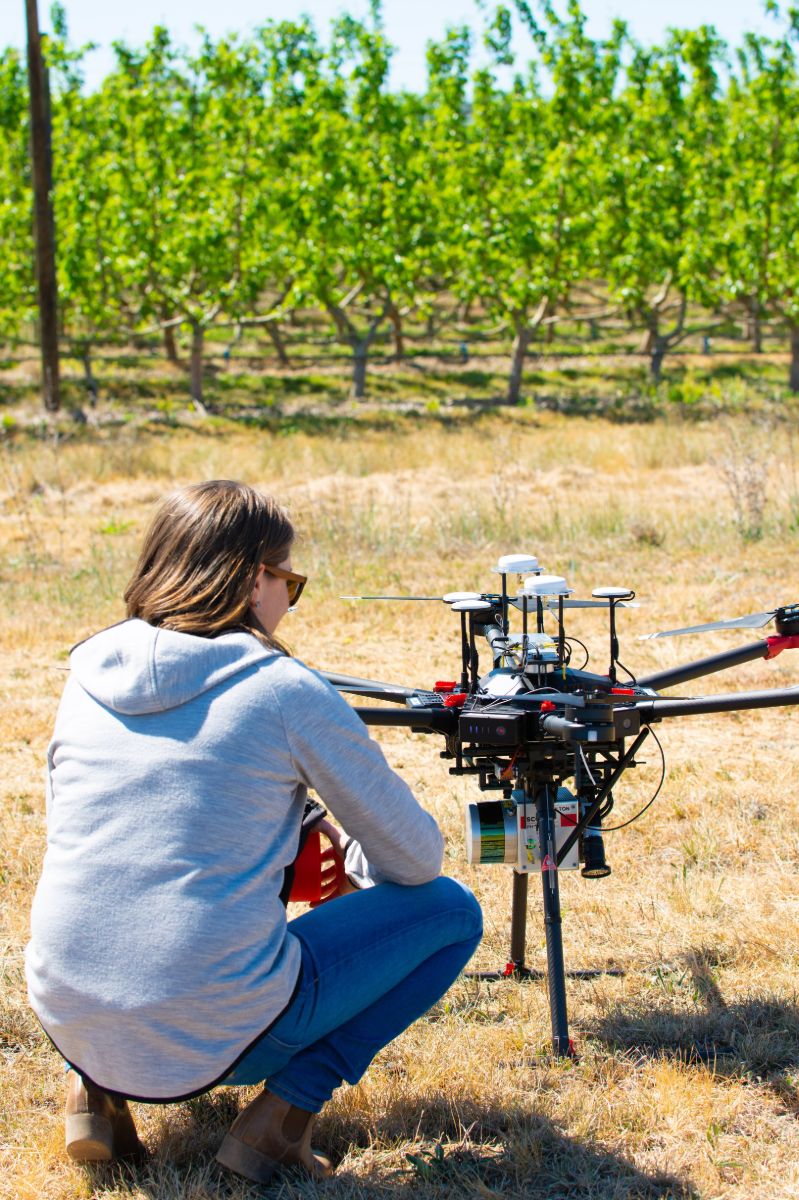Modernise
Victoria has one of the most modern and productive agricultural systems in the world. To maintain our competitive advantage, we must continually innovate and invest in technology, science and skills. Farmers and businesses who access new skills, technologies and approaches will deliver higher quality products to consumers with less environmental impact, and greater profitability.
Modern, sustainable farming comes in all shapes and sizes. All farmers – big and small, old and new – will be supported to adopt new technologies and practices that will help them achieve their goals.
Victoria also has all the right ingredients to be home to a thriving and globally competitive AgTech sector. Our compact geography, diverse industries and climate zones, and growing number of digitally mature farmers set a strong foundation for success.
Modernising is not just about research, innovation and technology. The agriculture workforce of the future will look different, and will need to be underpinned by new and diverse skills. Farmers will need the skills that will help them innovate, and new entrants to agriculture need to be equipped and ready to deal with the challenges and opportunities of farming in the future.
Modernise Victorian agriculture through innovation, investment and future skills
Commitments:
- Increase the adoption of new, effective and fit-for-purpose technology on farms across Victoria.
- Grow a thriving and globally competitive AgTech industry in Victoria.
- Enhance the commercialisation of research.
- Deliver the agriculture skills of the future.
Achievements
Supporting the training of Victoria’s future farmers
The Agricultural College Modernisation Program is delivering the agriculture skills of the future and helping more Victorians pursue an exciting career by building new student accommodation and teaching facilities at Longerenong College, Marcus Oldham College and University of Melbourne’s Dookie campus.
The Future Agriculture Skills Capacity Fund will support Victoria’s TAFEs and other agriculture education and training providers to develop students' skills, ensuring they have the training required for a future in agriculture.
As part of the Future Agriculture Skills Capacity Fund, the Secondary Schools Agriculture Fund will support Victorian secondary schools to assist students to transition into modern careers in agriculture. Expressions of interest for the Secondary Schools Agriculture Fund will open for tech schools in late 2021, and secondary schools in early to mid-2022.
Digital Agriculture Investment Scheme
The $10 million Digital Agriculture Investment Scheme as part of the Enabling the Digital Agriculture Revolution Program. Funding under the scheme was available to help businesses invest in on-farm digital technology projects to improve productivity, resilience and long-term viability of their farms.
The Digital Agriculture Investment Scheme will help farmers across the state ensure they are at the forefront of agriculture’s digital revolution.

Case studies
Using dendrometers to understand plant growth (horticulture)
Dendrometers are helping fruit growers in Victoria’s Goulburn Valley get better quality fruit to market. Used to measure the expansion and contraction of fruit or plants, they can help growers monitor different stages of growth and understand when a plant is in stress and needs more water. When a dendrometer is used on the stem or trunk of a plant, it can help a grower decide how much irrigation water needs to be scheduled, minimising waste and production costs. When used on fruit, it can provide information on the impact of water stress and nutrients, which in turn can help growers decide when to apply nutrients to get the best crop of fruit.
Using technology to better manage irrigation water (dairy)
Dairy farmers in East Gippsland are turning to technology to help them better manage their annual allocation of irrigation water. Critical for growing quality pasture for their cows to produce milk, irrigation water must be carefully managed. Waking up several times a night to check irrigation bays to ensure pastures get the water they need to grow is time-consuming and can mean pastures don’t get the amount of water they need. Automated irrigation technology is making it easier for farmers to manage their irrigation system and importantly, improve both efficiency and productivity. The technology can be scheduled to irrigate pasture at any time of the day or night without needing to release the water manually. Automating the system in this way allows farmers to control their irrigation even when they’re away from the farm.